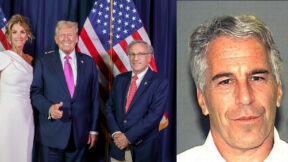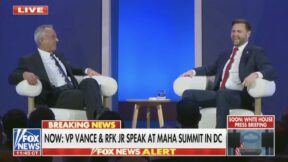Is The Gay Kiss Super Bowl Ad Controversy Starting To Unravel?
ManCrunch skeptic Mike Bawden at Brand Central Station says that the media has been a willing accomplice to the ManCrunch story and compares the willingness to accept the rejected-ad as being akin to other recent PR scams and manufactured controversies, like the Balloon Boy. Noting the role Fox News played in breaking the story, Bawden called it “a shame to see that none of the major news outlets covering this story are doing anything more than dancing to the same tune implanted into FOX News’ brain by a savvy PR flack.”
Bawden was among the first people to question whether the controversy was part of a larger hoax. He was quickly joined by Cyd Ziegler Jr. at gay sports blog OutSports, who said “I’m not buying since I smell a rat and am not rallying to the cause of some site that seemingly sprang up out of nowhere.”
CBS has largely been silent on the controversy, relying on the wording of their rejection that “creative is not within the Network’s Broadcast Standards for Super Bowl Sunday.” Early on, sources at CBS were saying off-the-record that ManCrunch was using the “tried-and-true tactic of generating free publicity by submitting a Super Bowl ad they knew was likely to be rejected and was ultimately unwilling to pay for,” according to James Hibberd at the Hollywood Reporter’s Live Feed blog.
 Bawden, an ad exec for 30 years now working and blogging in Iowa, told Mediaite that the effort to generate a controversy by offering an ad CBS wouldn’t take because it did not meet even basic advertising standards was “seedy,” but he saved his main criticism for the media who ran with the story.
Bawden, an ad exec for 30 years now working and blogging in Iowa, told Mediaite that the effort to generate a controversy by offering an ad CBS wouldn’t take because it did not meet even basic advertising standards was “seedy,” but he saved his main criticism for the media who ran with the story.
“No one is asking the question, ‘is it real or not?’” Bawden said. “We have to be smarter in how we cover these kinds of stories and someone should have asked much earlier on whether this ad was legitimate.”
Instead of looking into the ad and the people behind it, Bawden said the media was willing to just repeat the story over and over again, in part because the idea that CBS was being homophobic in rejecting the ad was a story that was couldn’t be passed up, even if the ad looked suspect.
Despite ManCrunch’s media blitz to gain sympathy for the CBS’ allegedly homophobic decision, it is not clear that everyone was buying the story. While the Gay and Lesbian Alliance Against Defamation issued a media release denouncing CBS, it was careful not to mention ManCrunch by name or even refer directly to the ad. In another CBS smackdown two days later, GLAAD led with the most recent CBS rejection but again focused on the Focus on the Family ad controversy.
While many LGBT rights activists were quick to blame CBS, it wasn’t a universal sentiment. Adam Rogers at Change.org’s blog said “I was initially excited and thought we were back in the game, until I watched the ad: Two straight guys fake kissing while their friend freaks out. This is the ad we are supposed to fight for? This is the ad that we want 100 million people to see?” Jonathan Capehart at the Washington Post also chimed in.
Daniel Villareal at Queerty dissected the ad and concluded:
Are we so starved for representation on TV that we’ll fight for bad representation over none at all? Why should gay viewers and organizations feel outraged that such a measly crumb as theirs stays swept off the table? Make no mistake, ManCrunch’s ad is not even in the same solar system as United Church of Christ’s ad. It’s not even an advocacy ad at all because almost everything it promotes works against any positive step towards of homosexual acceptance. CBS should be commended for rejecting such a piece of crap — for its substance, not its message — and with any luck, ManCrunch.com will be dead within the year.
While it’s easy to fault CBS for its unwillingness to take ads with gay content, the ManCrunch ad is a lousy test case for that theory. It’s impossible to tell if it was the kiss, the awful production values, the obvious desire to gin-up a controversy, or the questionable finances that resulted in CBS’s rejection.
More clear is that ManCrunch was masterful in creating this controversy and the media helped out. Given what we now know about ManCrunch, it was a cynical ploy that exploited pro-gay sentiment because there is genuine concern about how gays are portrayed in the media. While ManCrunch was quick to elicit assistance from gay rights groups and activists, there are now questions about how genuine that move was and whether the gay community was just another player in the drama.
Pages: 1 2
This is an opinion piece. The views expressed in this article are those of just the author.




